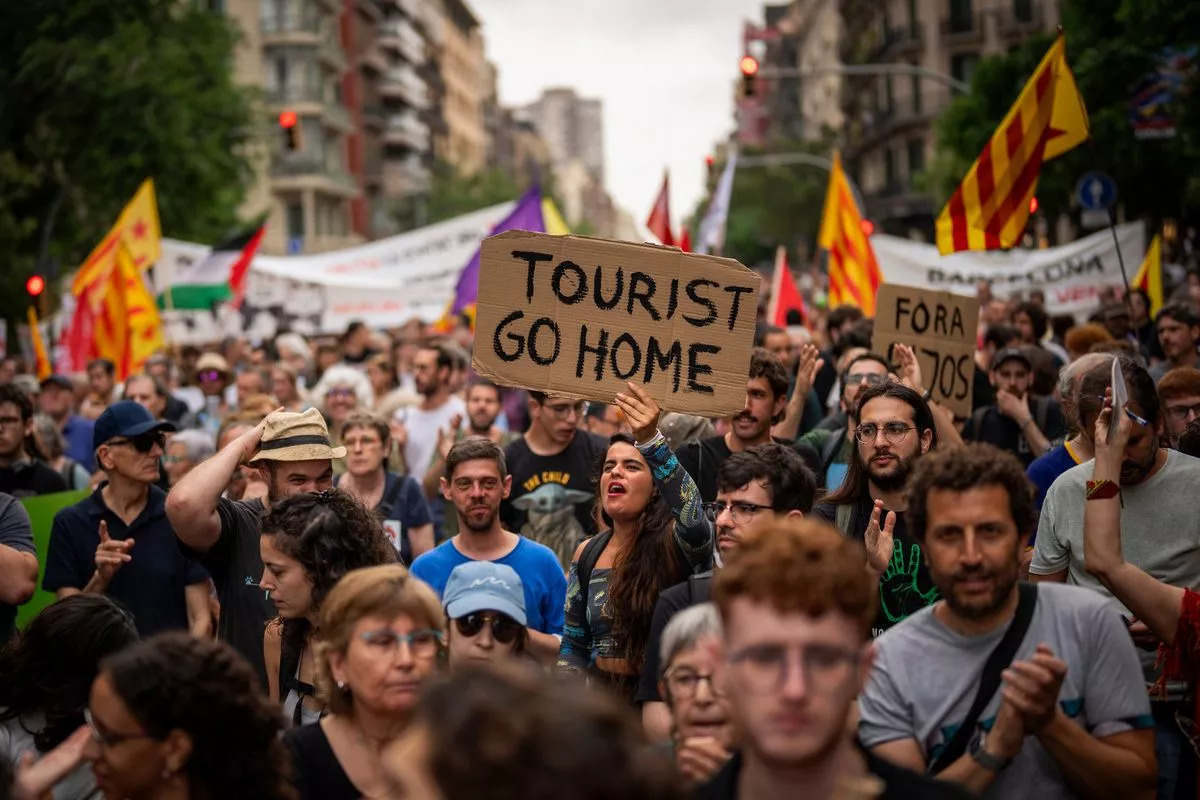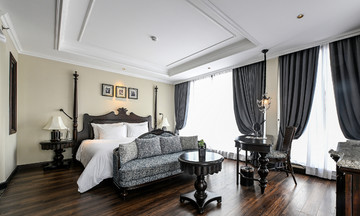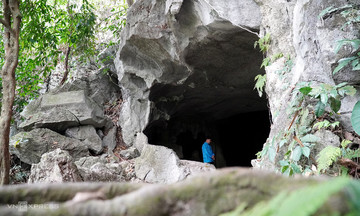A family residing in a 60-unit building near Plaza Mayor in central Madrid, Spain, reported enduring years of disruptive behavior from tourists. They described incidents of drunken revelry, vandalism, excessive noise, and unsanitary practices in common areas. Despite repeated complaints to authorities and landlords, the issues persisted, leading the family to take legal action to protect their privacy and quality of life.
The family of four, including two young children, stated they frequently witnessed short-term renters in the building engaging in drunken behavior, damaging property, vomiting, and even engaging in sexual activity in shared spaces. Two years ago, they enlisted the legal assistance of lawyer Miguel Angel Rubio to address the ongoing disruption.
 |
Spanish residents protest against over-tourism, holding signs reading "Tourist Go Home" and calling for restrictions on tourists and short-term rentals. Photo: AP |
Spanish residents protest against over-tourism, holding signs reading "Tourist Go Home" and calling for restrictions on tourists and short-term rentals. Photo: AP
Rubio gathered evidence documenting the uncontrolled situation, including accumulated garbage, all-night noise, and damage to common property. While a security guard was employed to monitor the building, police intervention was still frequently required.
Authorities had previously fined some apartment owners 16,000 EUR for noise violations. However, Rubio argued that these fines were insignificant compared to the potential earnings of rental companies – upwards of 150,000 EUR in a single weekend.
In July, the court ruled that the family's privacy had been significantly violated and awarded them 37,000 EUR in damages. The judge rejected the apartment owners' argument that the disturbances were typical of residential areas, emphasizing the renters' behavior as "unsanitary, objectionable, and even illegal."
The ruling by Madrid's 44th Court of First Instance is considered a landmark decision. For the first time, legally registered apartments were shut down due to their negative impact on residents' well-being. Previously, Spain had tightened regulations, requiring review and removal of approximately 20% of short-term rental apartments nationwide.
Mai Phuong (The Guardian, Mirror)












